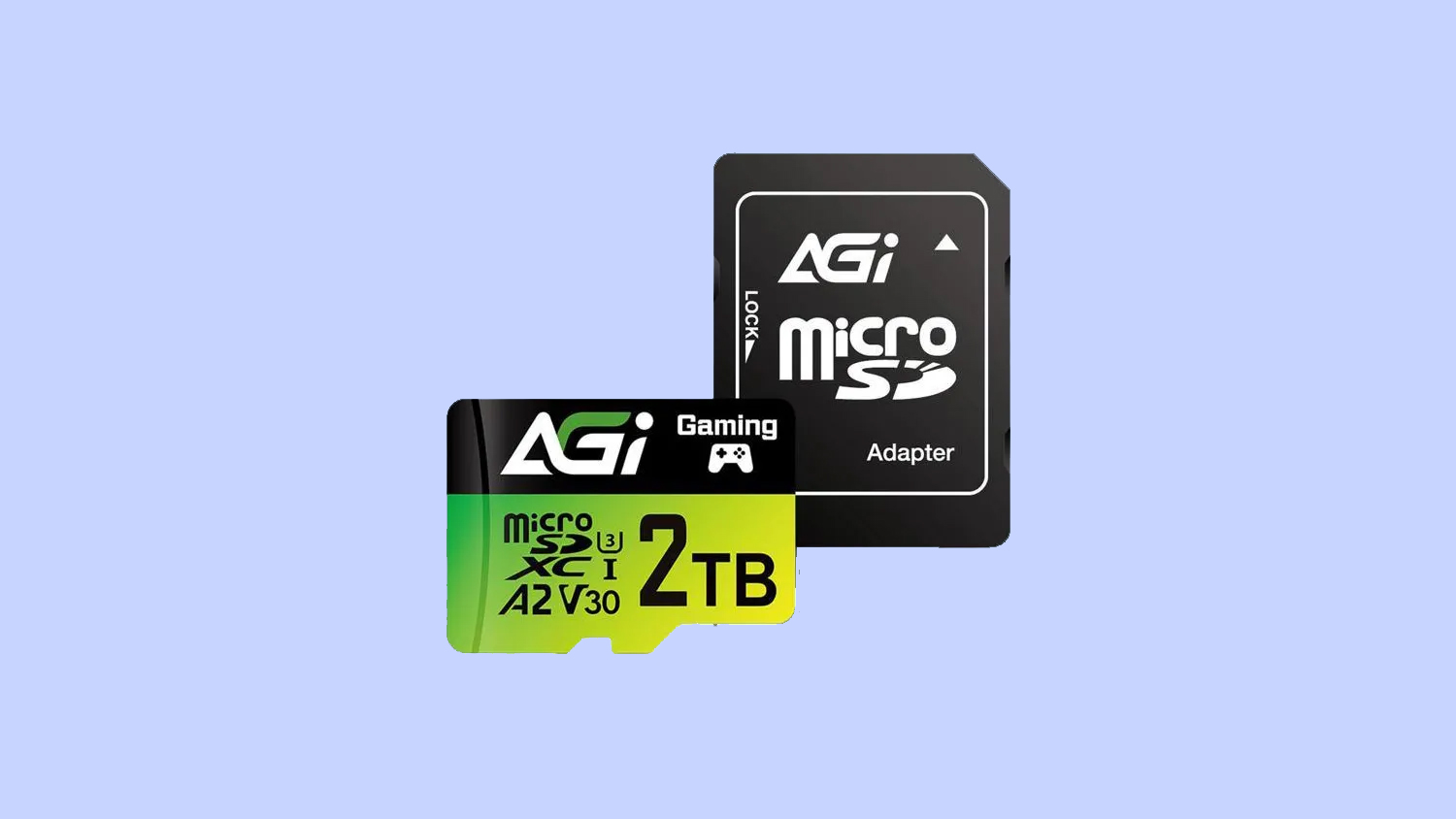The world’s first 2TB microSD card is here — what you need to know
microSD cards just got even bigger

If you need a ridiculous amount of storage space in a very small package, then you’ll be happy to hear that the first 2TB microSD card has now gone on sale. Better still, the AGI 2TB TF138 may not be as expensive as you expected, with NewEgg promising a $229 price tag (via TechRadar).
Ok, it’s not cheap. Especially when a 1TB microSD card can be purchased for under $100 from a big name brand like SanDisk. Or even less if you’re happy to buy from a lesser-known name. Of course, prices will no doubt change as more 2TB microSD cards make it to market, but for now there’s only one player in town to choose from.
So what else can you expect from this super-sized microSD card? According to AGI there are read/write speeds of up to 170/160MBps, assuming you have a card reader capable of reaching those speeds as well. Also listed is automatic error correction, the UHS-1 U3 high speed protocol, V30/A2 compatibility alongside some serious durability claims.
We’re talking dust and waterproofing, plus shockproofing, magnetic proofing and X-ray proofing. So it sounds like this card will be able to take some damage without breaking.
The only question is when will more 2TB microSD cards actually arrive? TechRadar notes that Kioxia announced the first card back in September 2022, and claims to have started mass production last month. So it shouldn’t be long before Kioxia’s Exceria Plus card goes on sale as well.
There’s no word on how much it might cost, however. It’s worth noting that a SanDisk 1.5TB microSD card, which launched just 3 months ago, will currently set you back $150. So expect any upcoming 2TB cards to be significantly more expensive.
Just be careful about what you order online, because there are a lot of scams out there. Fake 2TB cards are on sale at retailers with less-than stellar reputations, and may even register as 2TB cards by your PC. But don’t be duped.
Get instant access to breaking news, the hottest reviews, great deals and helpful tips.
Unfortunately those cards will simply overwrite older files once it reaches its (much smaller) storage limit. Which is not what you want if you’re backing up files or storing full-size video games.
More from Tom's Guide
- Forget the Galaxy S24 Ultra and iPhone 16 Pro — a true camera phone revolution is coming
- Android 15 could see the return of lock screen widgets — what we know
- Google Assistant is killing 17 commands in the coming weeks — what you need to know

Tom is the Tom's Guide's UK Phones Editor, tackling the latest smartphone news and vocally expressing his opinions about upcoming features or changes. It's long way from his days as editor of Gizmodo UK, when pretty much everything was on the table. He’s usually found trying to squeeze another giant Lego set onto the shelf, draining very large cups of coffee, or complaining about how terrible his Smart TV is.
 Club Benefits
Club Benefits





